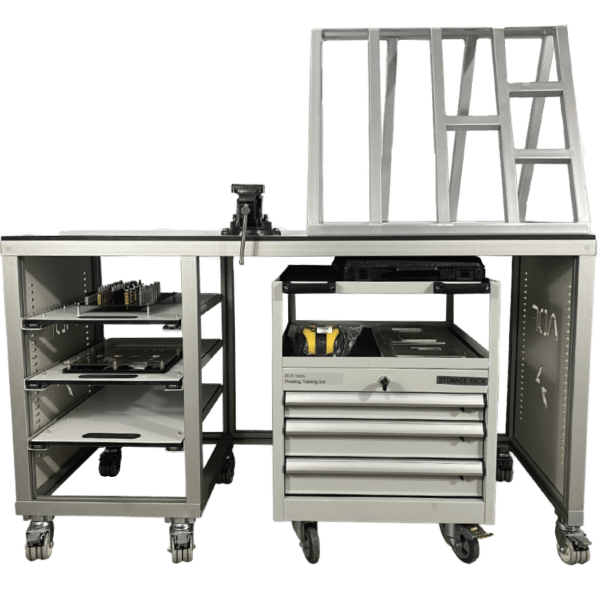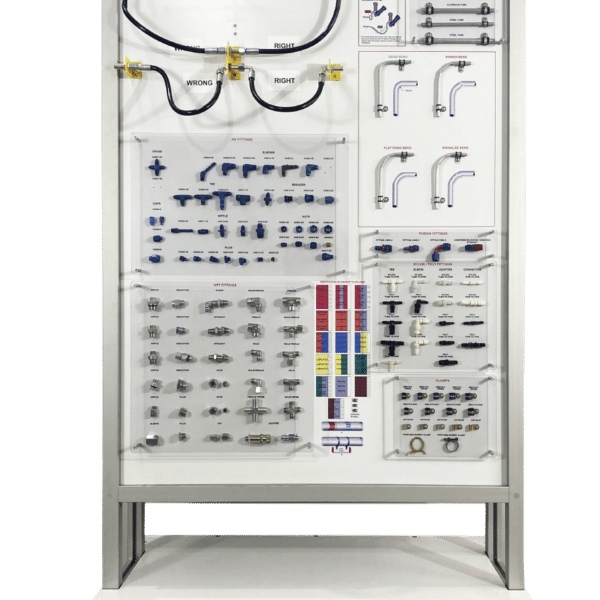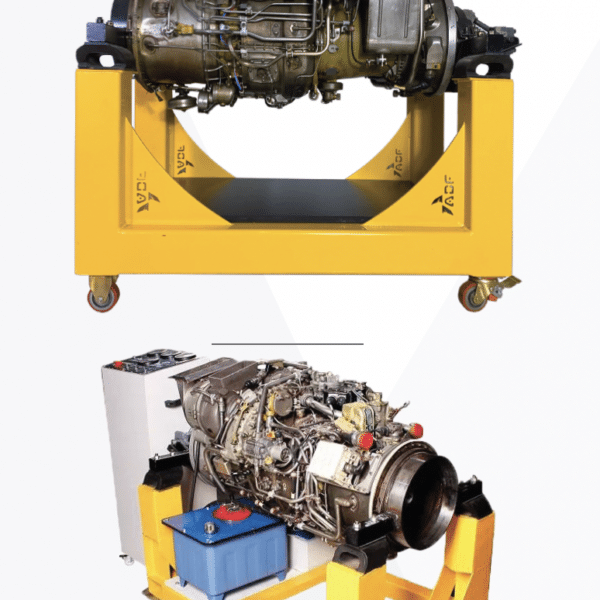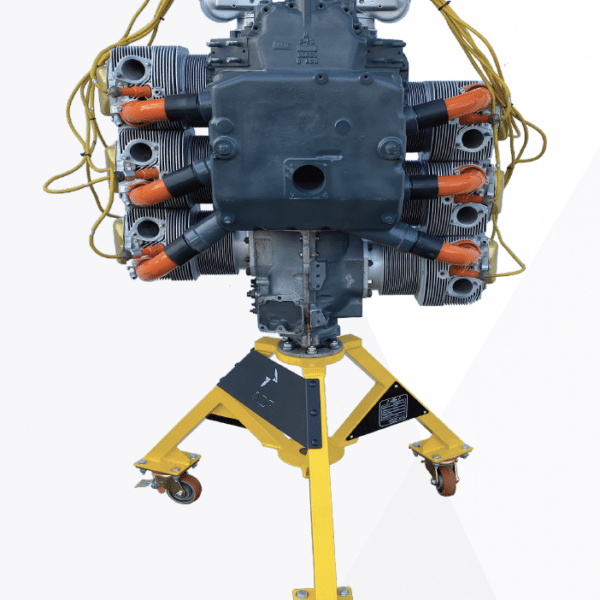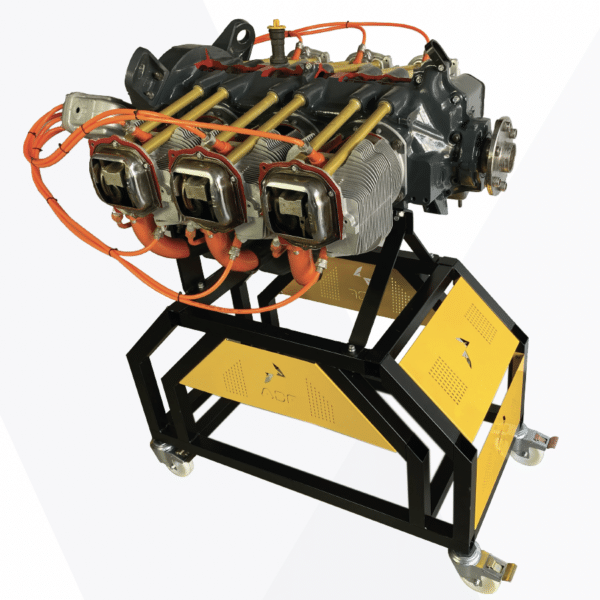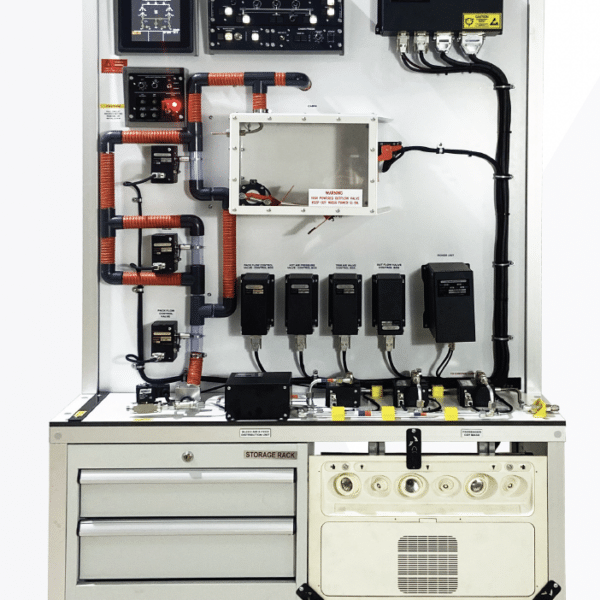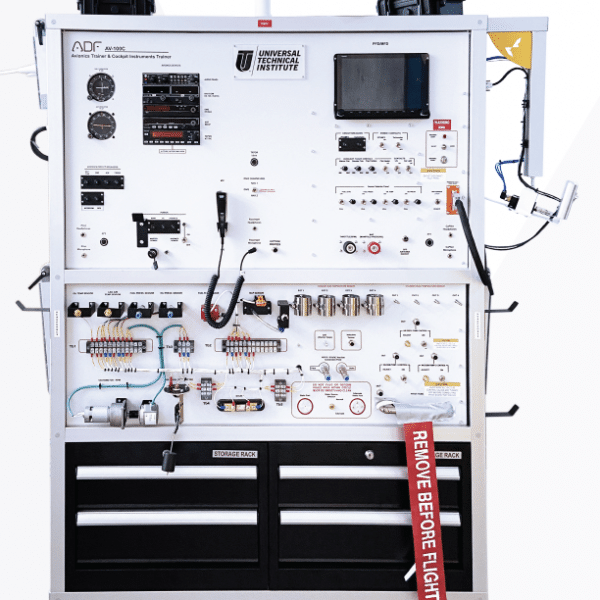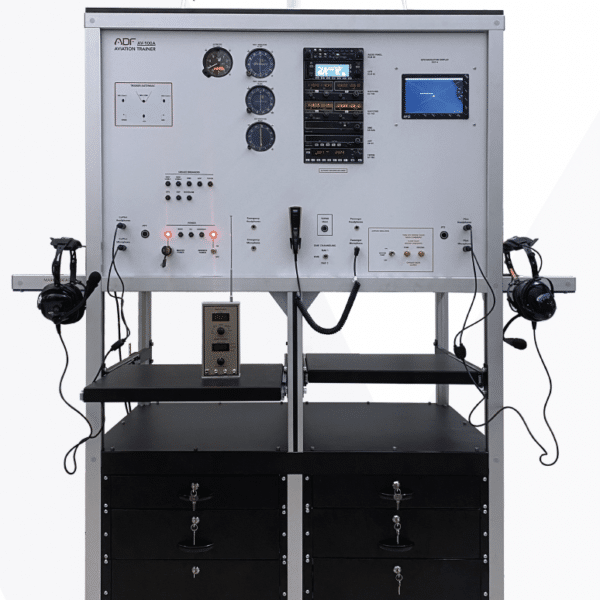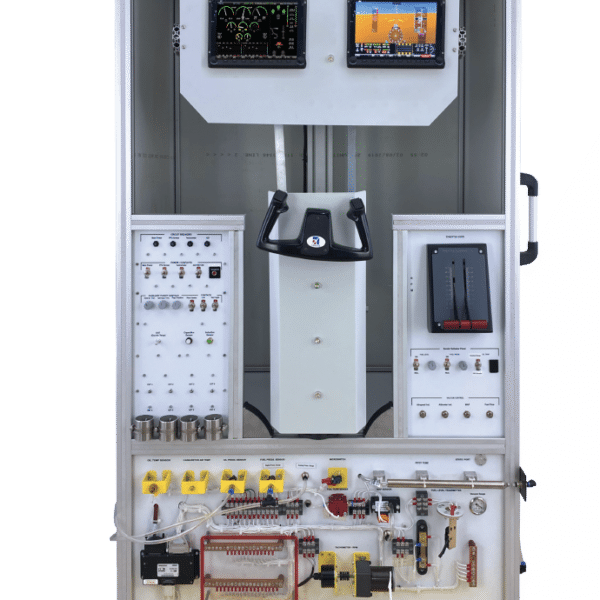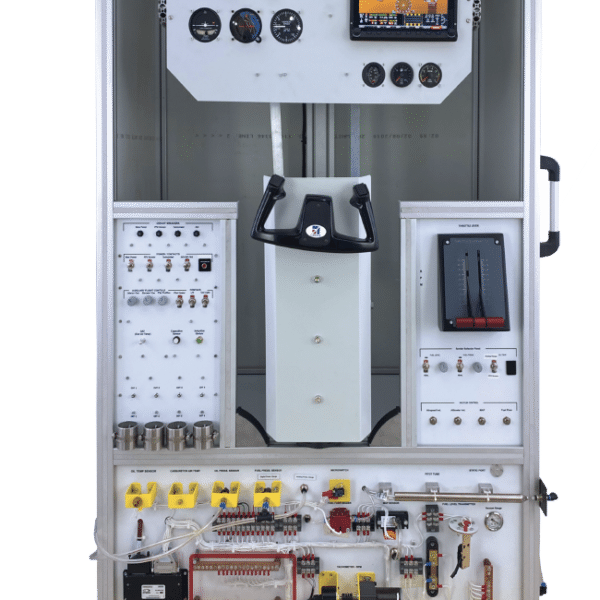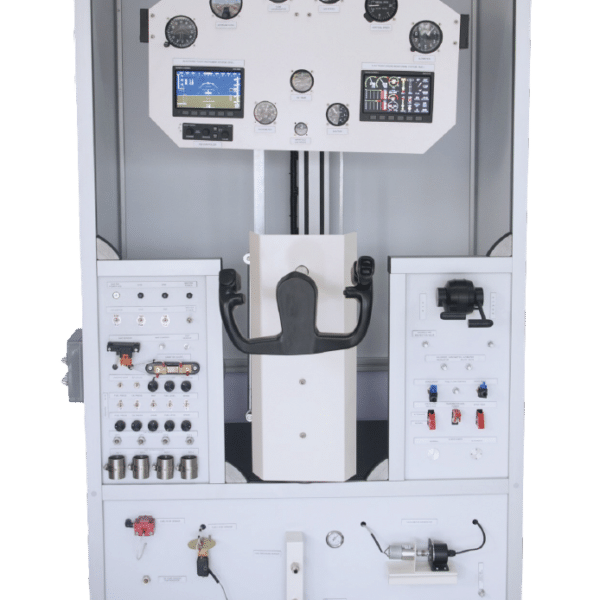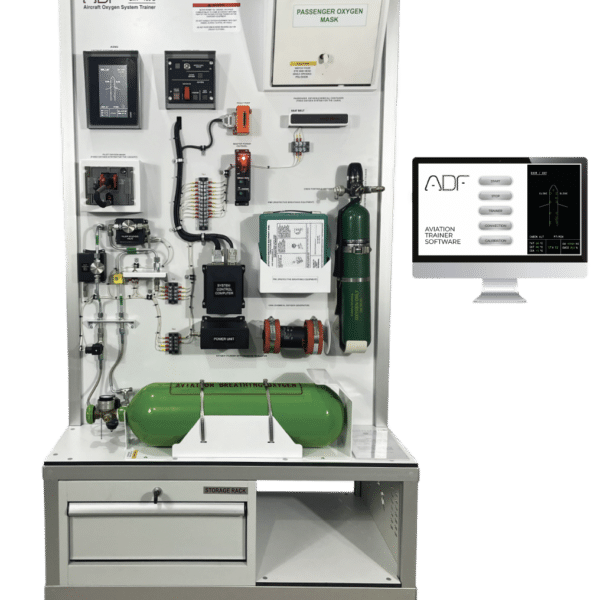Aviation Maintenance Training
At Toolkit Technologies, we recognize the growing demand for skilled aviation maintenance technicians in the industry. Boeing’s Pilot and Technician Outlook Report indicates that over the next twenty years, there will be a need for more than 690,000 new maintenance technicians to support maintenance, repair, and overhaul services. To address this workforce demand, production of aviation maintenance technicians must increase by at least 20%. However, we also understand the challenge of a lack of students enrolled in technical schools.
We take pride in offering the very best industry-driven aviation maintenance training equipment designed to teach the essential skills needed for the workforce to students at the high school, college, and workforce development levels. Our training aids are carefully crafted to be robust and are aligned with all aviation maintenance outcomes and faa regulations. You can trust that our products are manufactured in strict accordance with part-147 standards, ensuring the highest quality and safety.
Why Choose Toolkit Technologies:
Industry-driven training equipment: our aviation maintenance training products are designed based on real-world industry needs, ensuring that students acquire the skills required by employers.
Comprehensive curriculum coverage: our products cover a wide range of topics in aviation maintenance, including airframe, power plant, avionics, and more.
High-quality training aids: we utilize cutting-edge technologies and materials to create durable and effective training aids for a realistic learning experience.
FAA compliant: all our products meet FAA regulations and align with part-147 standards, guaranteeing the best possible training for aspiring aviation maintenance technicians.
Suitable for various educational levels: whether you are a high school student exploring a career in aviation or a professional seeking to advance your skills, our products cater to different educational levels.
Dedicated customer support: we provide exceptional customer support to address any queries or concerns you may have regarding our products.
Contributing to aviation industry growth: by equipping students with top-notch training aids, we contribute to closing the skills gap and supporting the growth of the aviation industry.
As a proven provider of world-class training solutions, we are committed to delivering excellence in aviation maintenance training products. Join us in shaping the future of aviation maintenance by providing students with the tools they need to succeed. Contact us today to explore our product offerings and find out how we can help meet your training needs.
Showing 1–12 of 23 results
-
Riveting Training System
We are proud to bring our Riveting Training System to Aviation Maintenance, A&P, and Aircraft Training programs across the country. The Riveting Training System is designed to help learners acquire skills in riveting through hands-on practice riveting of a fuselage of an aircraft.
Learners can learn right and wrong ways of riveting techniques and differentiate between them and the impact it has on aircraft. This training system also provides opportunity to practice over-sized riveting and Hi-Lok/ Lok-Bolt applications.
-
Aircraft Fittings and Fluid Lines Training System
We are proud to bring Aviation Maintenance, A&P, and Aircraft Training Programs our Fluid Lines & Fittings Training System for demonstrating multiple types of fluid line fittings and their assembly techniques to learners.
It displays the aircraft standard for assembling, routing, supporting fluid lines. Examples of frequently made mistakes are shown as well for learners to understand commonly found issues. The training system has a built in air supply, operated by a switch, that lets the air pressure from a reservoir to operate an actuator.
Components/hoses are mounted on both the front and the back of the vertical panel.
-
Aircraft Runnable Turboshaft Training System
A&P and Aviation Maintenance Training Students can learn basic components and systems on our gas turbine engine with hands-on Runnable Turboshaft Engine training system.
Students can operate a gas turbine engine with the training set after learning on operational procedures. Training set includes all the systems that is on a gas turbine engine.
-
Teardown Aircraft Piston Engine
Trainees can familiarize with four-stroke aircraft motor components and parts with our hands-on Teardown Aircraft Piston Engine training system.
Learners can improve manual practice by making extraction and assembly on the training system. They will also learn about maintenance procedures for the engine.
-
Aircraft Piston Engine Cutaway
We are proud to offer a full portfolio of high end cutaway training systems for all technologies related to aviation, transportation, and automotive technology classrooms.
Trainees can learn principles of operation of a piston aircraft engine on our Piston Engine Cutaway.
In this cutaway, the cylinder moves and the elements that impact the operation can be clearly seen.
All strokes, intake, compression, power, and exhaust, can be observed in a four-stoke engine. This cutaway can be manufactured with four or six cylinders.
-
Aircraft Cabin Pressurization Training System
The Cabin Pressurization Training System demonstrates how aircraft cabin pressurization and air conditioning systems function.
The compact construction of the set allows trainees to intuitively understand the system as they can visualize the connection between the various parts of the system in regulating the cabin environment. The trainer includes two chambers simulating altitude and cabin pressure.
The vacuum simulating chamber is able to simulate up to roughly 0 – 40,000 ft.
-
Avionics and Cockpit Instrumentation System Trainer
We are proud to present out hands-on training system for aviation maintenance and A&P programs for learners to get experience with Avionics, PFD and EMS systems.
The trainer system ensures practical training with original avionics equipment configured to bring real-life experience to the classroom.
Our design provides trainees with a good understanding of avionics and cockpit equipment with a methodical approach for troubleshooting. The trainer is delivered plug-and-play, and comes with necessary antennas, transmitters, receivers, wiring, and indicators.
Main Advantages:
- PFD / EMS Screen and System
- Pitot / Static System
- Engine Sensors
-
Avionics Training System
We are proud to present our hands-on Avionics Training System for A&P and Aviation Maintenance students.
The state of the art training system allows for hands-on experience on avionics systems. The trainer ensures practical training with original avionics equipment configured to bring real-life experience to the training environment. Our design provides trainees with a good understanding of avionics equipment and a methodical approach for troubleshooting.
The trainer is delivered plug and play and comes with necessary antennas, transmitters, receivers, wiring, and indicators.
NAV/COM Ramp Tester is optional.
-
Aircraft EFIS + EICAS Trainer
The Aircraft EFIS + EICAS Training system is a complete and fully functional simulation of typical aircraft cockpit. Electronic Flight Instrument System (EFIS) + Engine Indicating and Crew Alerting System (EICAS) are key aviation maintenance technologies for students to understand, and this training system includes all essential flight, engine and pitot-static instruments.
This training system provides hands-on maintenance training while also functioning as a demonstration tool for instructors. It demonstrates the principles of gyros, altimeter and the engine instruments, and also can be used for teaching of instrument removal and replacement.
-
Advanced Aviation Cockpit Instrumentation Trainer
Our Aircraft Cockpit Instrument Training System is a complete and fully functional simulation of typical aircraft cockpit.
It includes essential flight, engine and pitot-static instruments. This training system provides hands-on maintenance training while also functioning as a demonstration tool for instructors. It demonstrates the principles of gyros, altimeter and the engine instruments, and also can be used for teaching of instrument removal and replacement.
Differences between Standard Aviation Cockpit Instrumentation Trainer vs Advanced Cockpit Instrumentation Trainer:
- Smart PFD/MFD
- New technology PFD/MFD
- Larger display area
- Sliding MAP
- GPS
- Connects with NAV devices
The system can be customized to meet specific training requirements.
The training system can be upgraded with navigation systems such as VOR/ILS/VHF.
This system can be ordered with single or double PFD/MFD.
-
Aviation Cockpit Instrumentation Trainer
Our Aircraft Cockpit Instrument Training System is a complete and fully functional simulation of typical aircraft cockpit.
It includes essential flight, engine and pitot-static instruments. This training system provides hands-on maintenance training while also functioning as a demonstration tool for instructors. It demonstrates the principles of gyros, altimeter and the engine instruments, and also can be used for teaching of instrument removal and replacement.
The system can be customized to meet specific training requirements.
-
Aircraft Oxygen System Trainer
We are proud to present this training system for Aviation Maintenance Technicians depicting a commonly found aircraft oxygen system.
The external filler valve includes an orifice which restrains the filling rate, and it is protected by a cap so that contamination is prevented when the charging line is not connected.
The pressure regulator in the system adjusts the pressure in the cylinder to an amount that’s usable by the masks.
The mask couplings are fitted with restricting orifices to meter the amount of oxygen needed at each mask. A flow indicator that becomes visible when no oxygen is flowing is built into each tube to the mask.
The Indicator is pushed out of sight as oxygen begins flowing.

